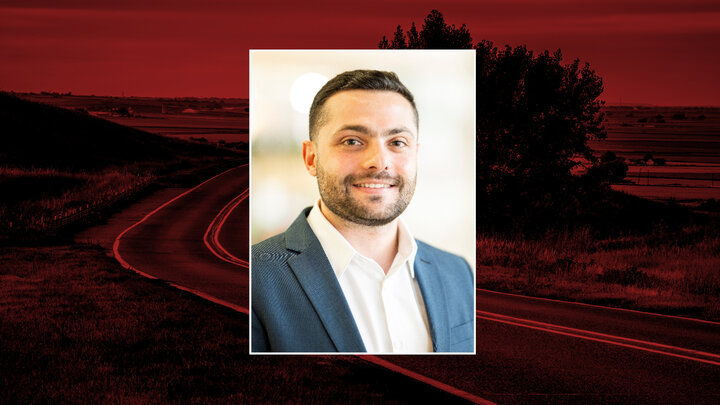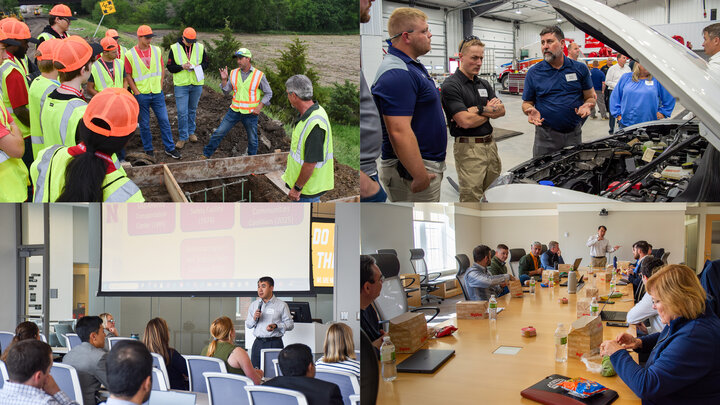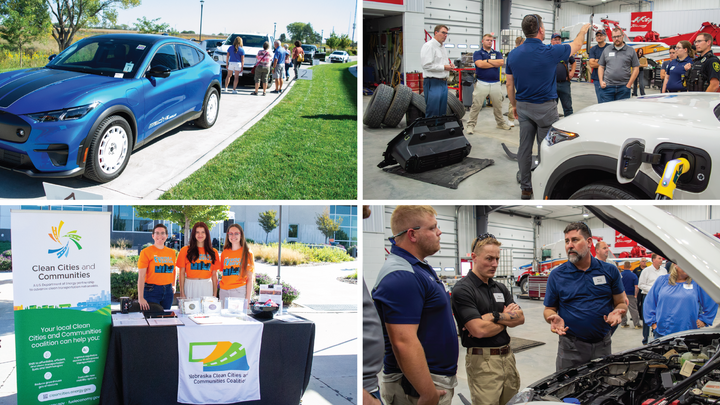Dr. Wissam Kontar, an Assistant Professor of Civil and Environmental Engineering and a courtesy appointment in the School of Computing at the University of Nebraska–Lincoln (UNL), is pushing the boundaries of transportation technology, autonomous mobility, and artificial intelligence. At UNL this fall, he is teaching CIVE 361: Principles of Transportation Engineering, where he has expanded the curriculum by introducing two new units focused on autonomous technology and artificial intelligence (AI) applications in transportation. In the spring he will teach CIVE 202: Civil Analysis II, an introductory to Python coding for the Civil Engineering practice.
Building on his teaching, Dr. Kontar’s research centers on consensus-seeking AI models in transportation systems. His work aims to improve safety, efficiency, and convenience, with expertise in multi-agent modeling, autonomous vehicle systems, and traffic operations.
To advance this research, Dr. Kontar will soon house a fully electric, autonomous Ford F-150 equipped with state-of-the-art perception, communication, and data acquisition systems tailored for connected and automated vehicle research. Managed by the Nebraska Transportation Center, the vehicle will serve as a shared research and application platform, available for other faculty members to rent for research purposes.
Recently, with support from the NSF National AI Research Resource (NAIRR) Pilot Program, Dr. Kontar’s lab released a series of open-source tools providing the research and practitioner communities with readily available AI models that evaluate how autonomous vehicles achieve consensus across safety, interaction, and efficiency. The work introduces a data-driven benchmark to assess and guide AV design toward balanced, context-aware performance. Dr. Kontar and his student, Mohammad Elayan, recently published their paper The Empirical Pareto Frontier of Automated Driving: Consensus Across Safety, Interaction, and Traffic that explores how integrating automated vehicles into transportation systems requires a balance of safety, interaction quality, and traffic performance. The team will soon release their in-house consensus-aware AI driving agent.
Transportation energy remains a core focus of Dr. Kontar’s work. He is currently working on a paper titled One Mile Forward, Six Miles Back, which examines whether US’s electrical grid is ready for widespread vehicle electrification. Through this study, he hopes to shed light on the energy and infrastructural challenges that accompany transportation innovation.
His research interests also extend into agriculture. Dr. Kontar is exploring the use of autonomous ground and air systems—such as drones and self-driving trucks—for last-mile delivery in farm-to-table operations. These technologies, he believes, could transform how agricultural products move from producers directly to consumers.
His growing interest in AI and agricultural delivery systems presents promising opportunities for collaboration across UNL, particularly with the School of Computing and the College of Agricultural Sciences and Natural Resources. To help support such interdisciplinary efforts, Dr. Kontar has identified the NSF Cyber Physical System as a potential funding source for future AI projects. NSF CPS seeks to connect U.S. researchers and communities, to solve impactful problems.
Looking ahead, Dr. Kontar also envisions partnering with the Nebraska Department of Transportation to develop AI chatbot agents capable of automating data collection and streamlining administrative procedures while maintaining strict privacy and accuracy standards.
Beyond transportation and AI, Dr. Kontar continues to explore new research directions. In a current study, Mobility Behavior Evolution During Extended Emergencies: Returners, Explorers, and the 15-Minute City, he analyzed how large-scale mobility patterns evolve during crisis. Now, he hopes to apply similar methods to study emergency responses to Nebraska’s most pressing weather hazards, such as blizzards and tornadoes.
For updates on Dr. Kontar’s ongoing projects, visit his website https://wissamkontar.github.io/. He is also developing a UNL-hosted webpage to showcase his latest publications and findings. Soon, a YouTube channel curated by his students will feature short videos and other research materials to make his work more accessible to the public.



